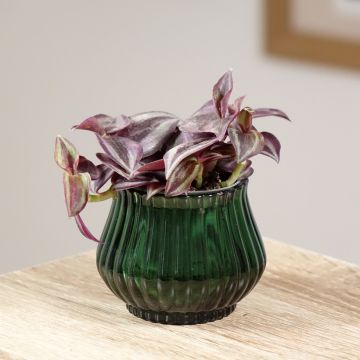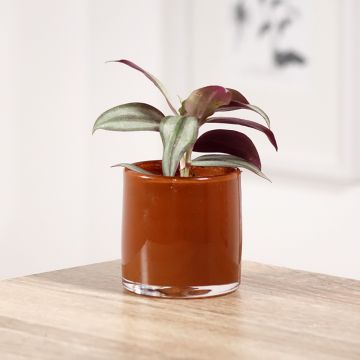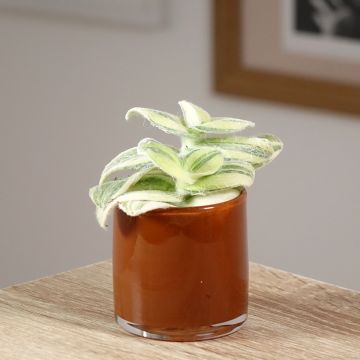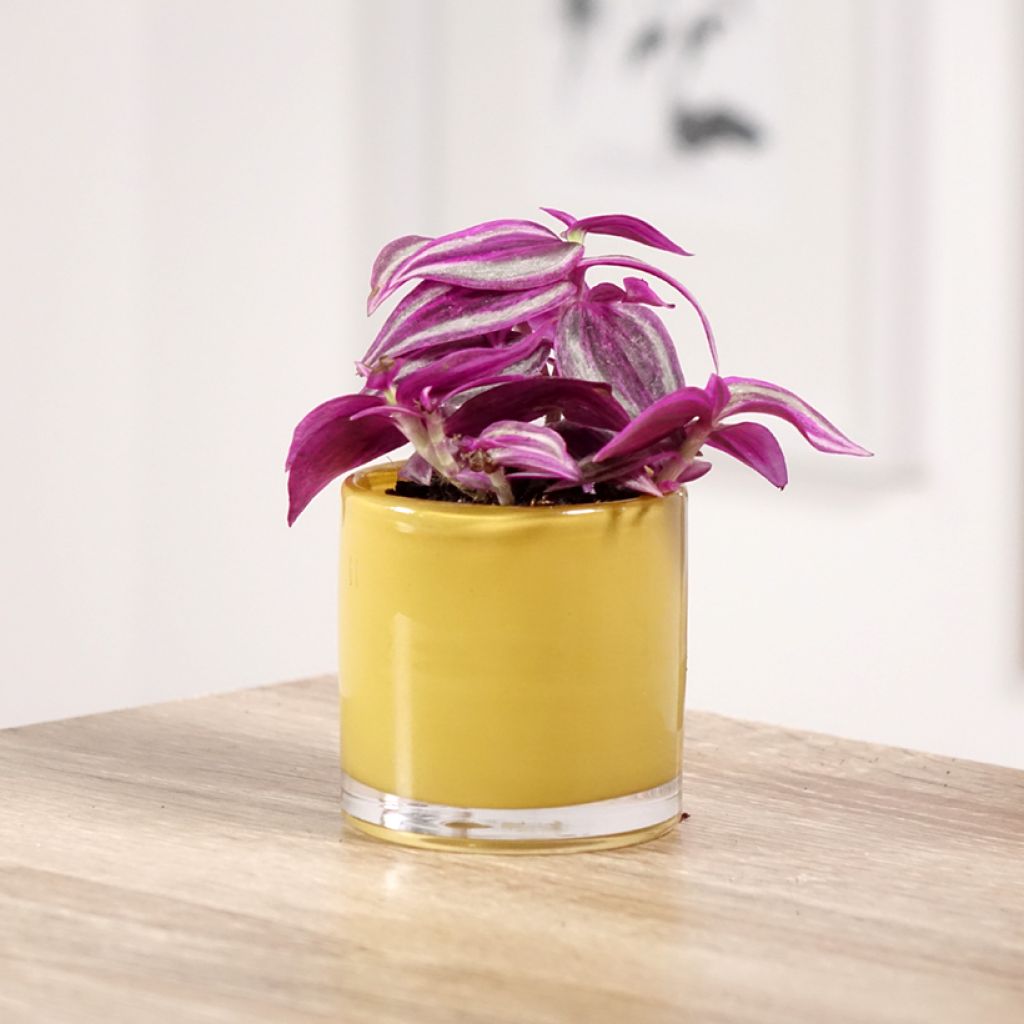

Tradescantia zebrina Pink Paradise - Silver inch plant
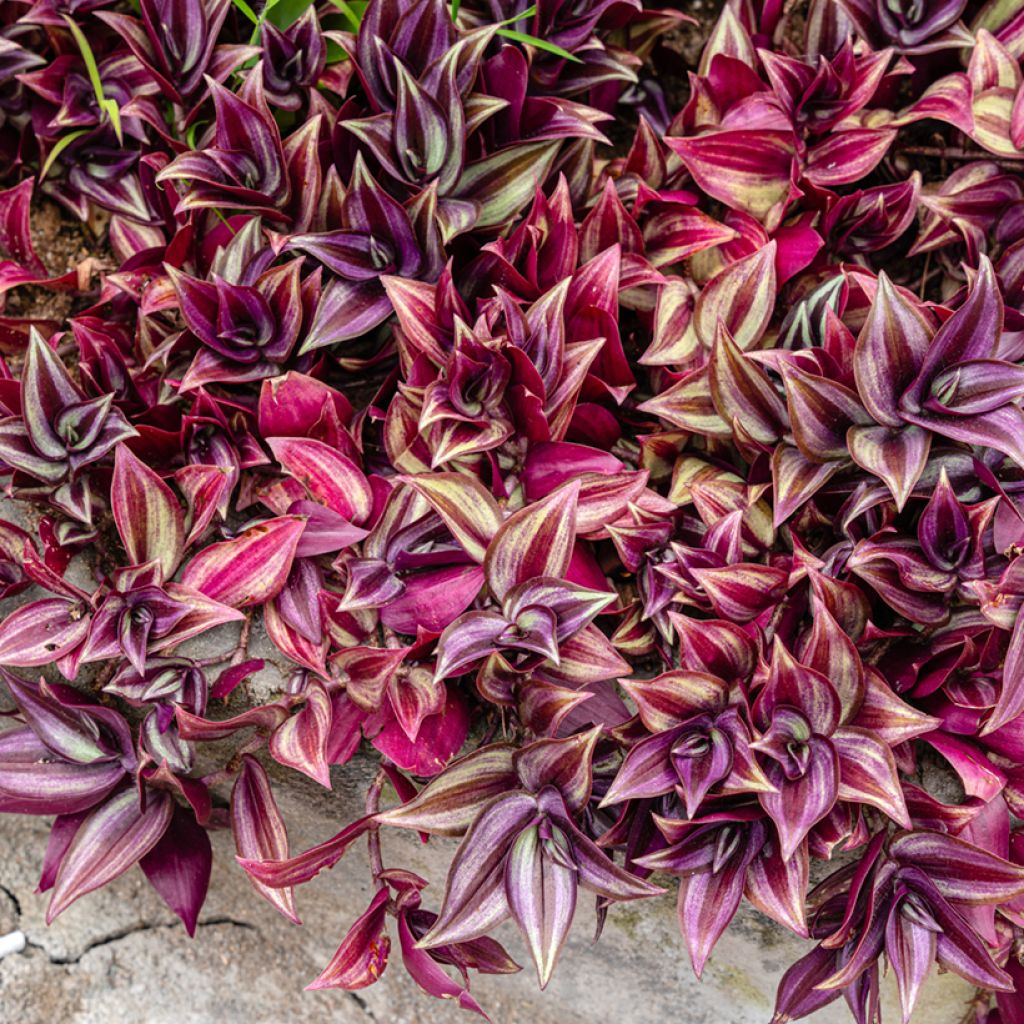

Tradescantia zebrina Pink Paradise - Silver inch plant
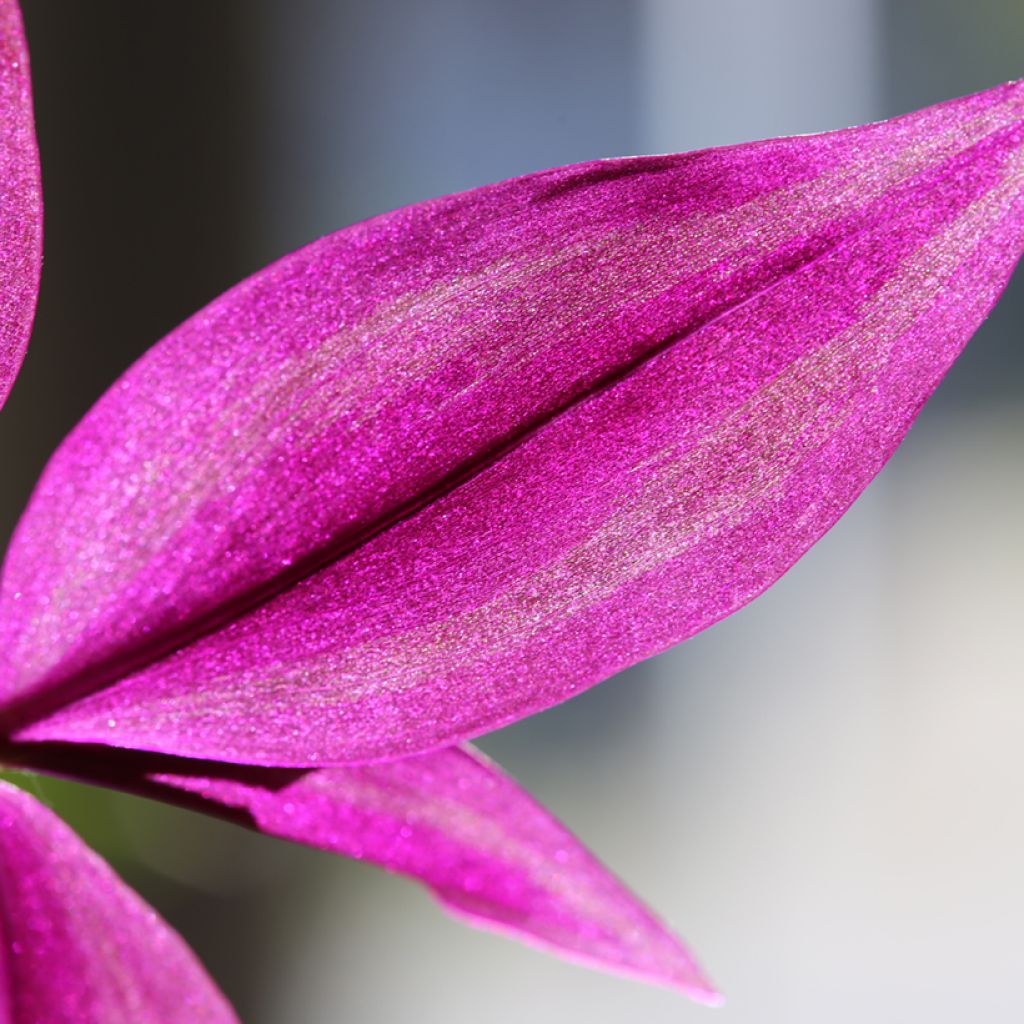

Tradescantia zebrina Pink Paradise - Silver inch plant
Tradescantia zebrina Pink Paradise - Silver inch plant
Tradescantia zebrina Pink Paradise
Silver inch plant, wandering dude, Zebrina pendula
Plant a bit small but as described, placed in a larger pot to allow safe replanting in place in October.
PASCAL, 04/06/2025
Special offer!
Receive a €20 voucher for any order over €90 (excluding delivery costs, credit notes, and plastic-free options)!
1- Add your favorite plants to your cart.
2- Once you have reached €90, confirm your order (you can even choose the delivery date!).
3- As soon as your order is shipped, you will receive an email containing your voucher code, valid for 3 months (90 days).
Your voucher is unique and can only be used once, for any order with a minimum value of €20, excluding delivery costs.
Can be combined with other current offers, non-divisible and non-refundable.
Home or relay delivery (depending on size and destination)
Schedule delivery date,
and select date in basket
This plant carries a 30 days recovery warranty
More information
We guarantee the quality of our plants for a full growing cycle, and will replace at our expense any plant that fails to recover under normal climatic and planting conditions.

Description
The Tradescantia zebrina 'Pink Paradise' sometimes nicknamed 'Pink Wandering Jew', is a lovely variety derived from the Striped Wandering Jew. It is a charming and easy-to-grow houseplant. With its shimmering leaves blending shades of pink, purple, and silver, it brightens up both a modern living room and an office. Plant it in a hanging basket or a pot on a shelf for a spectacular cascading effect!
The Tradescantia zebrina 'Pink Paradise' belongs to the Commelinaceae family. The Tradescantia genus includes around 70 species primarily native to tropical and subtropical regions of the Americas. The Tradescantia zebrina botanical species in particular is native to Mexico and Central America, where it thrives in cool, shaded forest environments. This trailing perennial is prized for its ornamental foliage and its common name 'Wandering Jew' comes from its ability to survive in challenging conditions. The ovate and pointed leaves typically measure between 4 and 10 cm in length and 1.5 to 3 cm in width. They feature a purplish upper surface adorned with fine silver and pink stripes, while the underside displays a uniform magenta hue. This plant has a fast growth rate, reaching a height of 15 to 30 cm with stems that can extend over a metre. It produces small three-petalled pink flowers, though flowering is rare indoors.
Warning - The plant's sap is toxic if ingested and may cause skin irritation in sensitive individuals, so handling with care is advised.
Indoors, the Tradescantia zebrina 'Pink Paradise' prefers bright, indirect light as direct sunlight may scorch its delicate leaves. Moderate ambient humidity is recommended, with ideal temperatures between 15 and 30°C. Regular watering is necessary, allowing the soil to dry slightly between waterings to avoid excess moisture.
The Tradescantia zebrina 'Pink Paradise' will thrive in a living room, bedroom, or even a well-lit bathroom. With its trailing habit, it is perfect in a hanging basket or placed high on a shelf where its stems will cascade gracefully. Pair it with neutral-toned ceramic pots to accentuate its hues, creating a modern and inviting green corner. Versatile and easy to grow, it suits minimalist, bohemian, or contemporary interiors alike.
Report an error about the product description
Foliage
Plant habit
Flowering
Botanical data
Tradescantia
zebrina
Pink Paradise
Commelinaceae
Silver inch plant, wandering dude, Zebrina pendula
Cultivar or hybrid
Safety measures
Other Indoor Tradescantia
View all →Location
Location
Maintenance and care
Watering tips
Potting advice, substrates and fertilisers
Houseplant care
Disease and pest advice
Maintenance and care
-
, onOrder confirmed
Reply from on Promesse de fleurs
Haven't found what you were looking for?
Hardiness is the lowest winter temperature a plant can endure without suffering serious damage or even dying. However, hardiness is affected by location (a sheltered area, such as a patio), protection (winter cover) and soil type (hardiness is improved by well-drained soil).

Photo Sharing Terms & Conditions
In order to encourage gardeners to interact and share their experiences, Promesse de fleurs offers various media enabling content to be uploaded onto its Site - in particular via the ‘Photo sharing’ module.
The User agrees to refrain from:
- Posting any content that is illegal, prejudicial, insulting, racist, inciteful to hatred, revisionist, contrary to public decency, that infringes on privacy or on the privacy rights of third parties, in particular the publicity rights of persons and goods, intellectual property rights, or the right to privacy.
- Submitting content on behalf of a third party;
- Impersonate the identity of a third party and/or publish any personal information about a third party;
In general, the User undertakes to refrain from any unethical behaviour.
All Content (in particular text, comments, files, images, photos, videos, creative works, etc.), which may be subject to property or intellectual property rights, image or other private rights, shall remain the property of the User, subject to the limited rights granted by the terms of the licence granted by Promesse de fleurs as stated below. Users are at liberty to publish or not to publish such Content on the Site, notably via the ‘Photo Sharing’ facility, and accept that this Content shall be made public and freely accessible, notably on the Internet.
Users further acknowledge, undertake to have ,and guarantee that they hold all necessary rights and permissions to publish such material on the Site, in particular with regard to the legislation in force pertaining to any privacy, property, intellectual property, image, or contractual rights, or rights of any other nature. By publishing such Content on the Site, Users acknowledge accepting full liability as publishers of the Content within the meaning of the law, and grant Promesse de fleurs, free of charge, an inclusive, worldwide licence for the said Content for the entire duration of its publication, including all reproduction, representation, up/downloading, displaying, performing, transmission, and storage rights.
Users also grant permission for their name to be linked to the Content and accept that this link may not always be made available.
By engaging in posting material, Users consent to their Content becoming automatically accessible on the Internet, in particular on other sites and/or blogs and/or web pages of the Promesse de fleurs site, including in particular social pages and the Promesse de fleurs catalogue.
Users may secure the removal of entrusted content free of charge by issuing a simple request via our contact form.
The flowering period indicated on our website applies to countries and regions located in USDA zone 8 (France, the United Kingdom, Ireland, the Netherlands, etc.)
It will vary according to where you live:
- In zones 9 to 10 (Italy, Spain, Greece, etc.), flowering will occur about 2 to 4 weeks earlier.
- In zones 6 to 7 (Germany, Poland, Slovenia, and lower mountainous regions), flowering will be delayed by 2 to 3 weeks.
- In zone 5 (Central Europe, Scandinavia), blooming will be delayed by 3 to 5 weeks.
In temperate climates, pruning of spring-flowering shrubs (forsythia, spireas, etc.) should be done just after flowering.
Pruning of summer-flowering shrubs (Indian Lilac, Perovskia, etc.) can be done in winter or spring.
In cold regions as well as with frost-sensitive plants, avoid pruning too early when severe frosts may still occur.
The planting period indicated on our website applies to countries and regions located in USDA zone 8 (France, United Kingdom, Ireland, Netherlands).
It will vary according to where you live:
- In Mediterranean zones (Marseille, Madrid, Milan, etc.), autumn and winter are the best planting periods.
- In continental zones (Strasbourg, Munich, Vienna, etc.), delay planting by 2 to 3 weeks in spring and bring it forward by 2 to 4 weeks in autumn.
- In mountainous regions (the Alps, Pyrenees, Carpathians, etc.), it is best to plant in late spring (May-June) or late summer (August-September).
The harvesting period indicated on our website applies to countries and regions in USDA zone 8 (France, England, Ireland, the Netherlands).
In colder areas (Scandinavia, Poland, Austria...) fruit and vegetable harvests are likely to be delayed by 3-4 weeks.
In warmer areas (Italy, Spain, Greece, etc.), harvesting will probably take place earlier, depending on weather conditions.
The sowing periods indicated on our website apply to countries and regions within USDA Zone 8 (France, UK, Ireland, Netherlands).
In colder areas (Scandinavia, Poland, Austria...), delay any outdoor sowing by 3-4 weeks, or sow under glass.
In warmer climes (Italy, Spain, Greece, etc.), bring outdoor sowing forward by a few weeks.






























